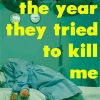Effect of Theophylline as Adjunct to Inhaled Corticosteroids on Exacerbations in Patients With COPD
ncbi.nlm.nih.govAmong adults with COPD at high risk of exacerbation treated with inhaled corticosteroids, the addition of low-dose theophylline, compared with placebo, did not reduce the number COPD exacerbations over a 1-year period. The findings do not support the use of low-dose theophylline as adjunctive therapy to inhaled corticosteroids for the prevention of COPD exacerbations. Of the 1567 participants analyzed, mean (SD) age was 68.4 (8.4) years and 54% (843) were men. Data for evaluation of the primary outcome were available for 1536 participants (98%) (772 in the theophylline group; 764 in the placebo group). In total, there were 3430 exacerbations: 1727 in the theophylline group (mean, 2.24 [95% CI, 2.10-2.38] exacerbations per year) vs 1703 in the placebo group (mean, 2.23 [95% CI, 2.09-2.37] exacerbations per year); unadjusted mean difference, 0.01 (95% CI, -0.19 to 0.21) and adjusted incidence rate ratio, 0.99 (95% CI, 0.91-1.08). Serious adverse events in the theophylline and placebo groups included cardiac, 2.4% vs 3.4%; gastrointestinal, 2.7% vs 1.3%; and adverse reactions such as nausea (10.9% vs 7.9%) and headaches (9.0% vs 7.9%). The number of participant-reported moderate or severe exacerbations treated with antibiotics, oral corticosteroids, or both over the 1-year treatment period.

















